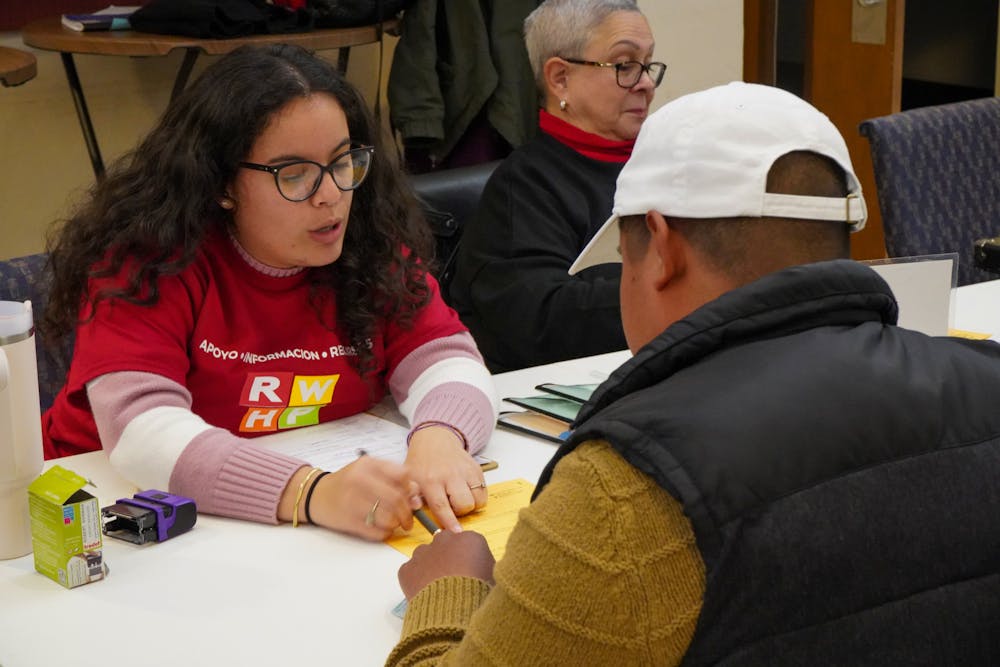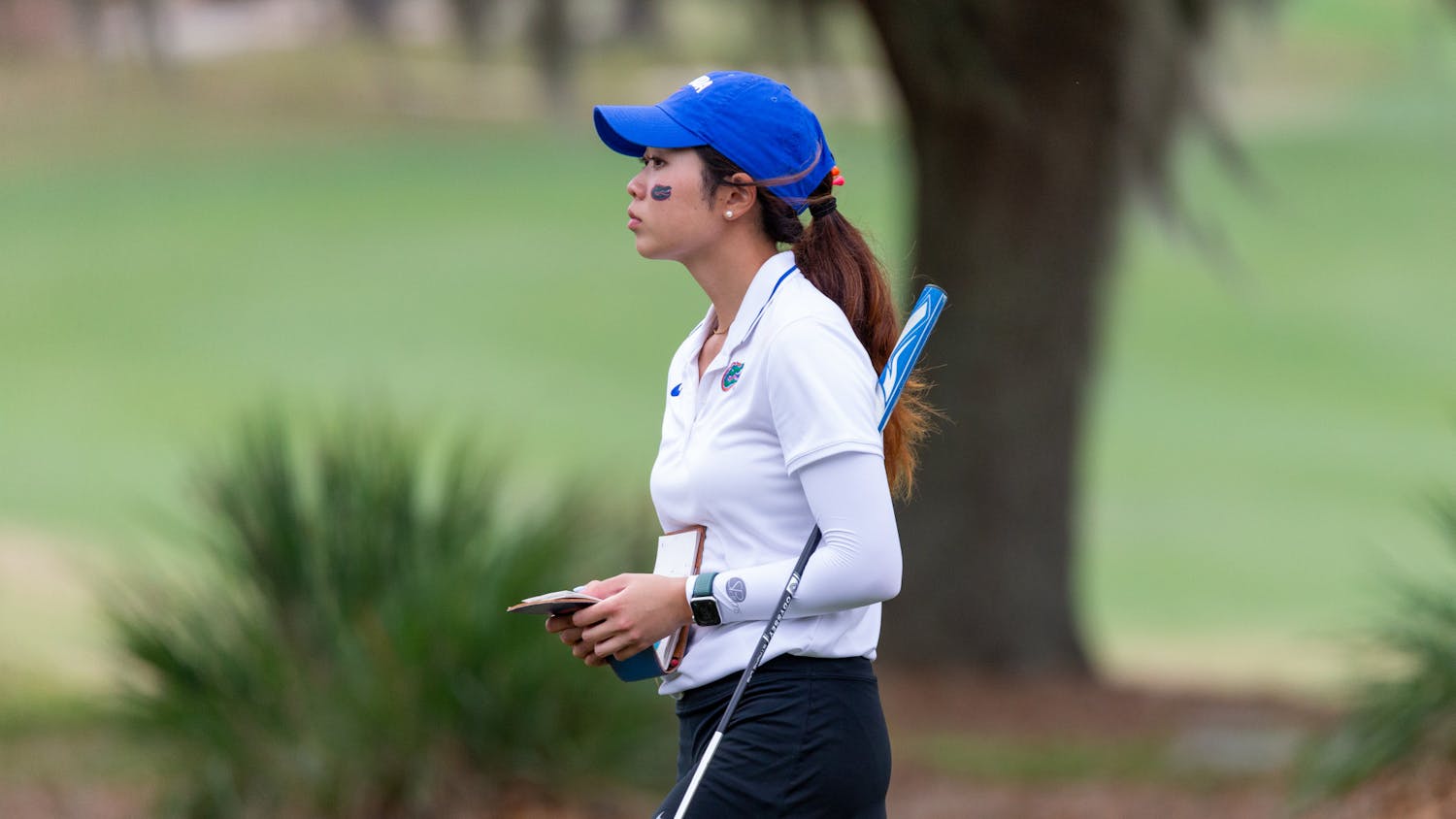Around 50 residents of Alachua County, varying from directors, volunteers and participants, gathered on Wednesday at the Westminster Presbyterian Church for the Human Rights Coalition’s monthly ID Fair.
The event aims to provide Alachua County residents, primarily non-resident immigrants, with an HRC ID card, which is a dependable form of identification and can be used for circumstances like medical appointments, encounters with law enforcement, city departmental appointments and education.
This form of ID is recognized by Alachua County and the City of Gainesville for local use.
Veronica Robleto, the 44-year-old director of the HRC, says the ID serves as a way to not only identify yourself as a person, but also as a member of the community.
“The need for this ID started with the immigrant community who could not access a legal form of identification,” she said. “Despite it not being an official government ID, you can use it for various simple necessities around the city.”
Although the community ID started as a project that was only valid in Alachua County, other counties have recently also wanted to implement the use of these IDs.
“Throughout the months of November and December, we started providing these IDs in counties outside of Alachua, such as in Marion and Levy ,” she said. “Although it is not recognized officially like it is in Alachua, it’s better to have something compared to nothing.”
To acquire a community ID, participants need to provide proof of identity such as a passport or driver’s license from any country; proof of age, such as a birth certificate; and proof of address, such as a utility bill or bank statement.
At the event, participants provide the required documents to the volunteers, take an identification picture and leave with their HRC Community ID. The ID card costs $10.
After the process is over, the HRC also provides information on other nonprofits around Alachua County such as their partner Rural Women’s Health project.
Their joint focus is to aid the community furthermore by not only providing identification forms, but also medical resources, social aid and legal advice.
“We also organize events where we provide legal information about [a person’s] rights and inform them about immigration laws, so that the community can be properly informed,” Robleto said.
In addition to the IDs, the fair provided non-citizen families with legal advice on how to prepare in case of an emergency.
In this family plan, provided at the fair, families with undocumented parents could fill a legal power of attorney form where they would appoint a trusted citizen as the temporary guardian of their children in case something were to happen to them. Notaries were present at the fair for those wanting to file the family plan, and the volunteers also provided them with additional information about the plan.
“This is something that the community really needs,” said 62-year-old volunteer Veronica Villaseñor. “It is nice to see how the community also really comes together and shares time with each other during these events.”
Participants of the program agree the program has a positive impact on the community and their families. Elizabeth Hunt, a 47-year-old Alachua County resident, had just gotten her ID and said it brought inclusivity into her home.
“I just got married in December and my husband is from Honduras, so we both wanted to have this ID and see what the process was like,” she said. “Because everyone is bilingual and it takes place at a church, it feels very welcoming and safe here.”
Gabriella Chavez is a staff writer at The Alligator
Gabriella Chavez is a senior journalism major and Spring 2025 Caimán reporter. Whenever she's not writing, you can find Gabriella reading, creating playlists or playing with her cat.






